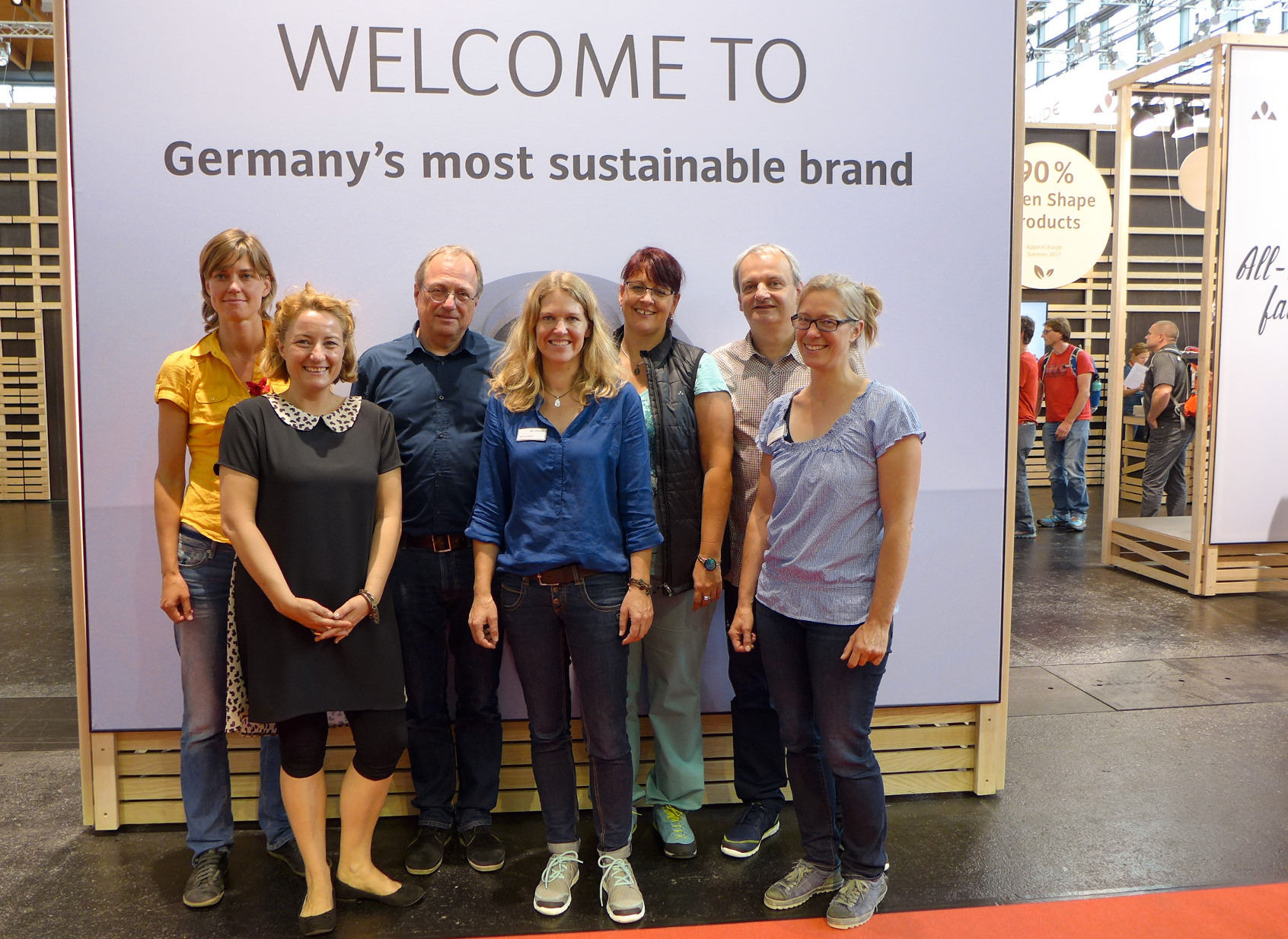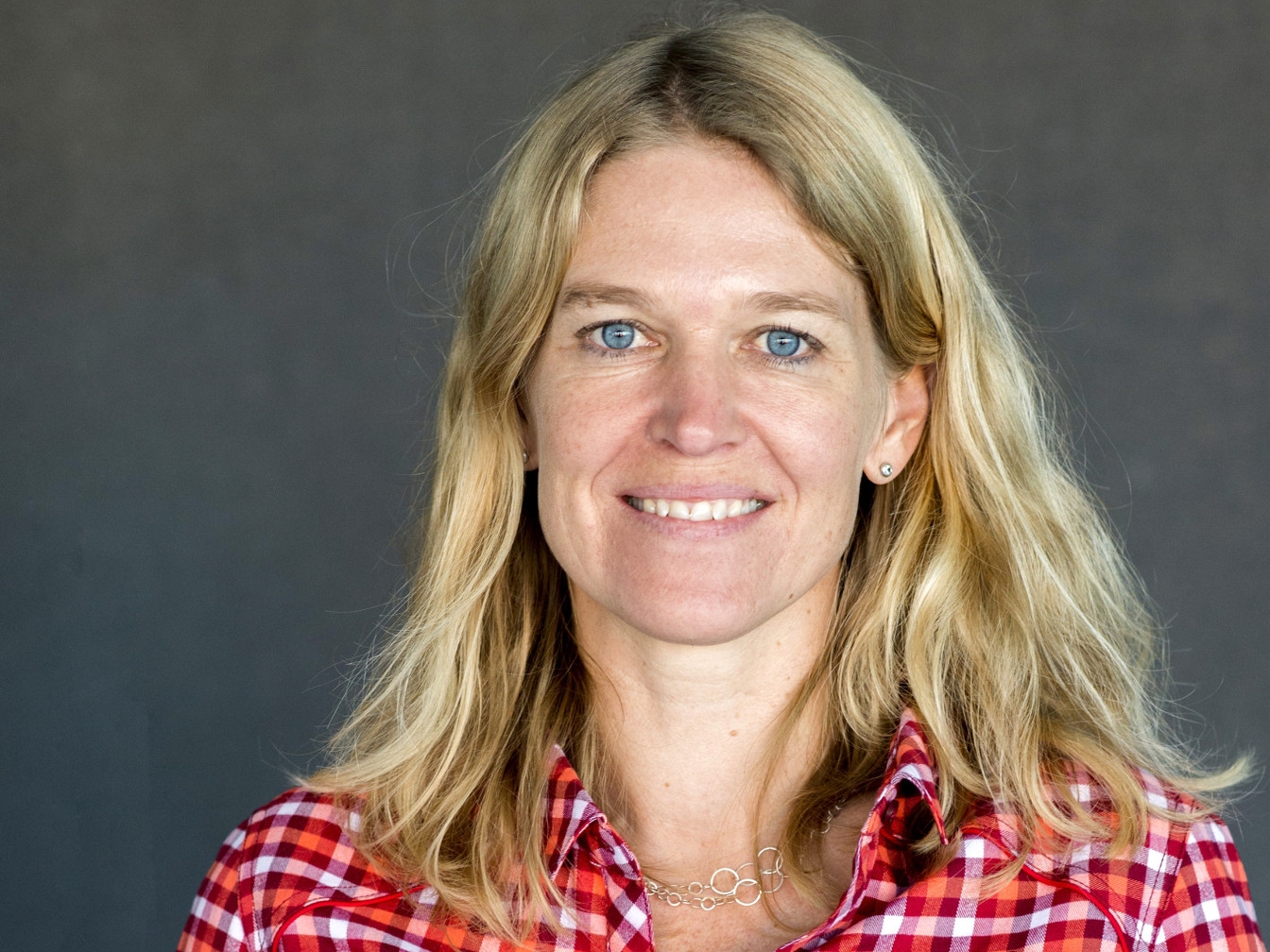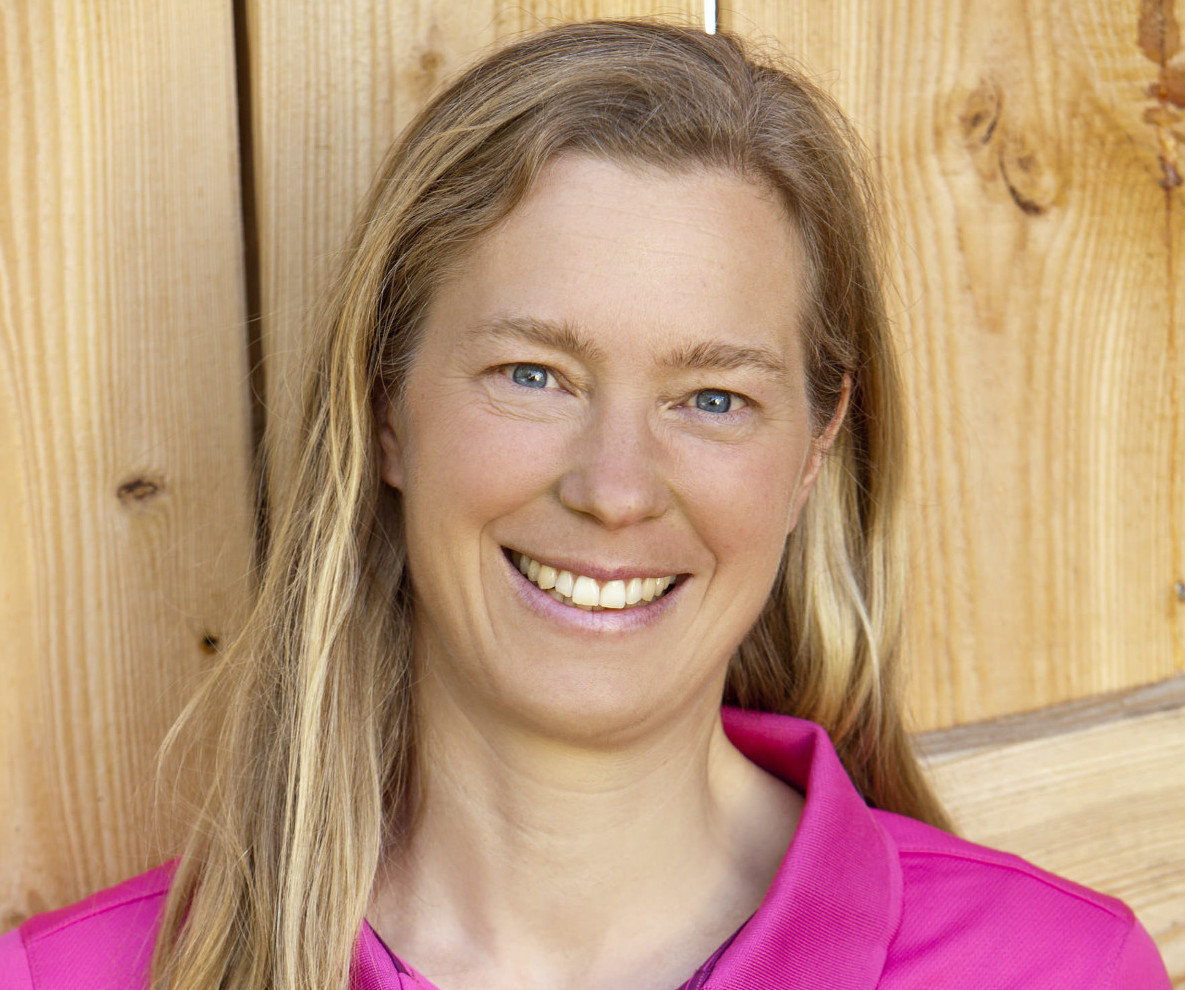VAUDE announces Greenpeace Detox Commitment

From left: Mirjam Kopp, Detox Outdoor project leader from Greenpeace / Chiara Campione, Greenpeace / Manfred Santen, Chemistry expert from Greenpeace / Antje von Dewitz, CEO VAUDE / Bettina Roth, Head of Quality Mangement VAUDE / Jan Lorch, Head of Sales and CSR VAUDE / Hilke Patzwall, VAUDE CSR Manager
"Zero Discharge" is the joint goal of VAUDE and Greenpeace. With this commitment, VAUDE is taking clear responsibility for the entire lifecycle of its products, which also includes clean and safe production throughout the supply chain.

Mirjam Kopp, Detox Outdoor project leader from Greenpeace:
»VAUDE has taken the PFC issue seriously from the beginning and has now set a very ambitious timeline to eliminate these hazardous chemicals by 2018 from its entire supply chain. Thank you VAUDE for responding to your customers’ demands, for choosing to commit to Detox and taking this bold step towards a toxic-free future.«
For years VAUDE has been working hard to completely avoid the use of hazardous chemicals – at its material suppliers as well.

Antje von Dewitz, VAUDE CEO:
»We want to be able to stand behind even the smallest button on our products. But as an independent mid-sized company, the influence we have over our suppliers and the chemical industry has been too low. We therefore welcomed the Detox Greenpeace campaign from the outset. After intensive discussions and negotiations with Greenpeace, we have found common ground – which we are very pleased about! After all, we can only make progress by working together.«
Strict Management of Hazardous Chemicals
For VAUDE, the voluntary Detox Commitment involves major challenges that once again go far beyond the company’s current high level of dedication. The biggest challenge is the commitment to the Manufacturing Restricted Substance List (MRSL), which regulates strict limits and bans the use of many chemical substances in the production process and in the finished product. The crucial issue here is that the MRSL refers not only to the finished product, but to all chemicals that are used in the production process as well.

Hilke Patzwall, VAUDE CSR Manager:
»For us this means that we need to bring all our suppliers on board and ensure that they build the relevant skills and awareness to avoid these chemicals. This is a daunting task that goes far beyond the normal sphere of a mid-sized outdoor brand and that requires enormous human and financial resources. But we are convinced that we as a brand share responsibility for the components in our products and that this is the only way to progressively reduce their environmental impact – especially locally in Asia.«
VAUDE is already actively moving ahead along this path. The company recently launched the pilot project "Environmental Stewardship in the Textile Supply Chain": VAUDE’s primary material suppliers in China and Taiwan, which cover about 80% of its material volume, are being given the necessary expertise and the management’s awareness of hazardous chemicals is increasing. Training courses are led by both third-party and VAUDE experts in the local language on-site. The project is sponsored by the DEG (German Investment and Development Corporation) and is supported by the Federal Ministry of Economic Cooperation and Development. It is considered revolutionary across the entire textile industry. More
VAUDE Apparel completely PFC-free by 2018
VAUDE has now voluntarily and publicly committed itself to eliminating fluorocarbons (PFCs) from the Apparel Collection by 2018. This is clearly reaffirmed in the Greenpeace Commitment. VAUDE has already made considerable progress: 95% of all clothing in the VAUDE Summer Collection 2017 is PFC-free. Through intensive research and development activities, VAUDE has now succeeded in even finding a PFC-free DWR alternative with a high level of functionality for waterproof textile finishes. By 2020 fluorocarbons will be completely eliminated from all hardware products.
Transparency and new business models
To actively contribute to social change toward more sustainable design and consumption, VAUDE has also committed to developing new business models such as second-hand use, rental concepts and upcycling under the Detox Commitment. Another important focus of the agreement with Greenpeace is the issue of transparency. Thus VAUDE assures that it will not only report on its results and progress, but also on its challenges and unresolved issues transparently and publicly. This will both allow the local community near the Asian production sites access to relevant environmental data for their region so that the local civil society can defend itself from contaminants there as well as fast track discussions within the textile and chemical industry to find joint solutions for unsolved problems.




